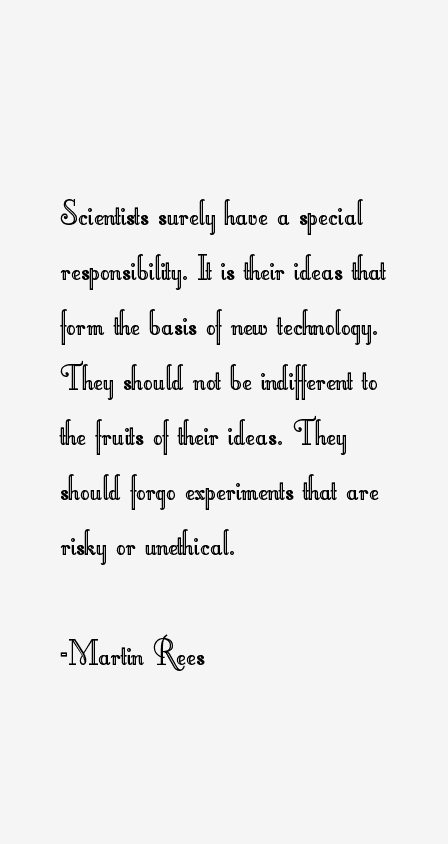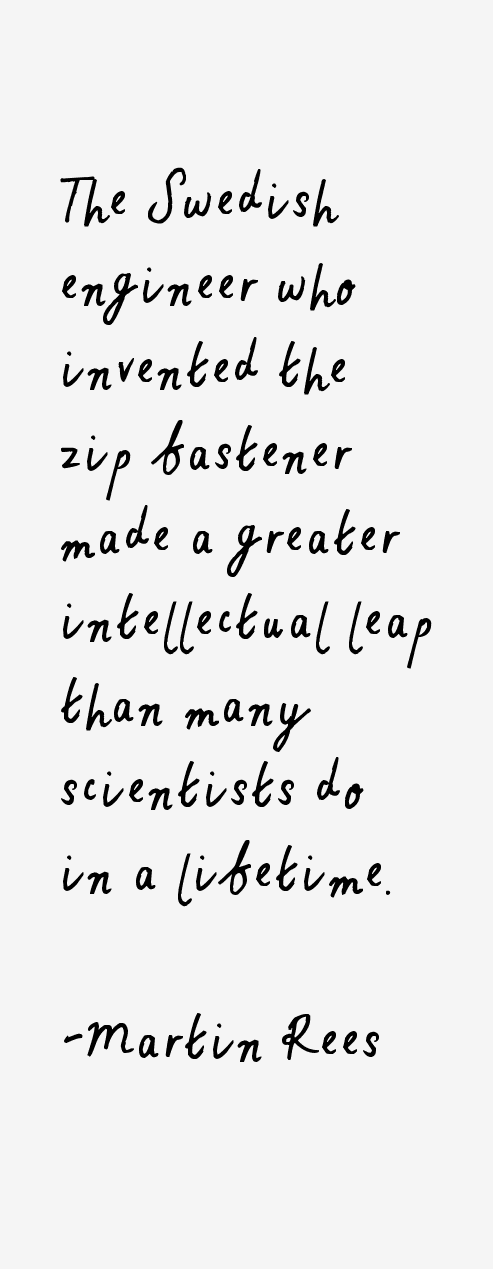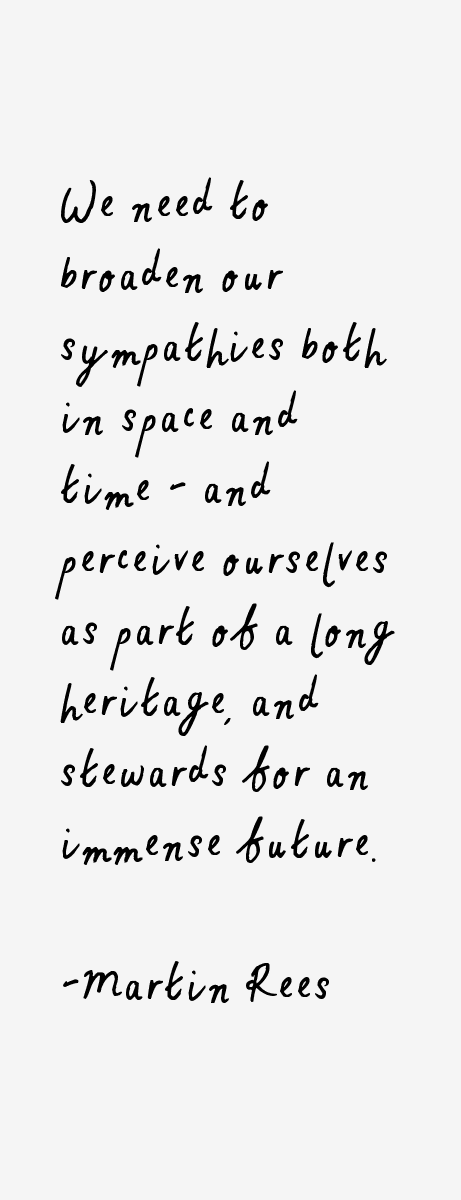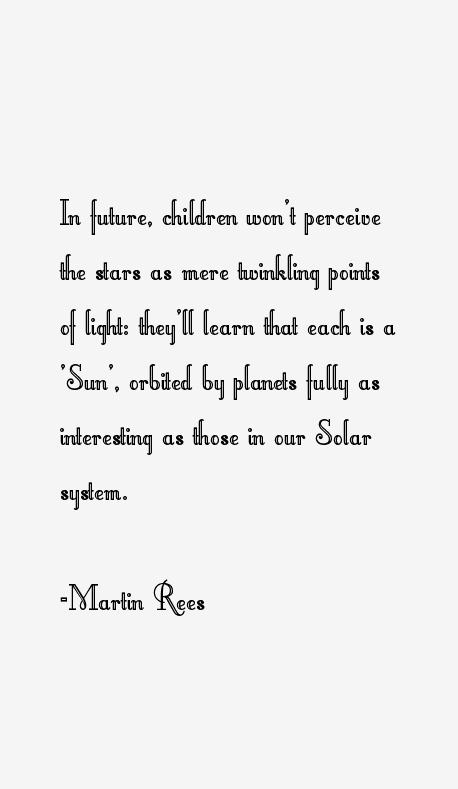Martin Rees Quotes & Sayings (Page 2)
Martin Rees quotes and sayings page 2 (scientist). Here's quote # 11 through 20 out of the 105 we have.

“Scientists surely have a special responsibility. It is their ideas that form the basis of new technology. They should not be indifferent to the fruits of their ideas. They should forgo experiments that are risky or unethical.”
“Some global hazards are insidious. They stem from pressure on energy supplies, food, water and other natural resources. And they will be aggravated as the population rises to a projected nine billion by mid-century, and by the effects of climate change. An 'ecological shock' could irreversibly degrade our environment.”
“The bedrock nature of space and time and the unification of cosmos and quantum are surely among science's great 'open frontiers.' These are parts of the intellectual map where we're still groping for the truth - where, in the fashion of ancient cartographers, we must still inscribe 'here be dragons.'”
“When scientists are asked what they are working on, their response is seldom 'Finding the origin of the universe' or 'Seeking to cure cancer.' Usually, they will claim to be tackling a very specific problem - a small piece of the jigsaw that builds up the big picture.”

“The 'clean energy' challenge deserves a commitment akin to the Manhattan project or the Apollo moon landing.”

“The Swedish engineer who invented the zip fastener made a greater intellectual leap than many scientists do in a lifetime.”

“We need to broaden our sympathies both in space and time - and perceive ourselves as part of a long heritage, and stewards for an immense future.”

“In future, children won't perceive the stars as mere twinkling points of light: they'll learn that each is a 'Sun', orbited by planets fully as interesting as those in our Solar system.”
“Ironically, it is only when disaster strikes that the shuttle makes the headlines. Its routine flights attracted less media interest than unmanned probes to the planets or the images from the Hubble Telescope. The fate of Columbia (like that of Challenger in 1986) reminded us that space is still a hazardous environment.”
“Scientists habitually moan that the public doesn't understand them. But they complain too much: public ignorance isn't peculiar to science. It's sad if some citizens can't tell a proton from a protein. But it's equally sad if they're ignorant of their nation's history, can't speak a second language, or can't find Venezuela or Syria on a map.”
Martin Rees Quotes Rating
No Ratings Yet
Leave A Comment
























